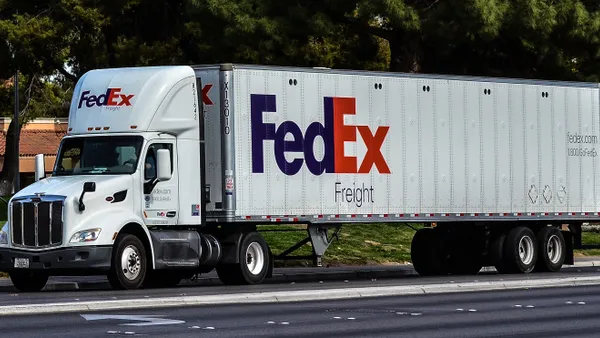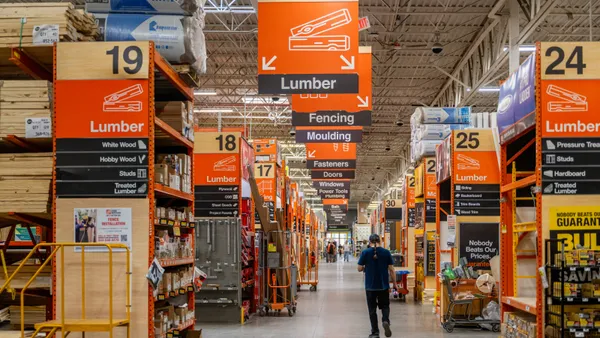Editor's Note: This post has been updated to reflect the Supreme Court's decision not to hear a case against electronic logging devices.
Dive Brief:
- UPS petitioned the Federal Motor Carrier Safety Administration (FMCSA) for four exemptions to the ELD mandate, based on the company's particular truck usage, Overdrive reported last week.
- Particularly, UPS asks the FMCSA extend the phase-in period for its trucks equipped with automatic on-board recording devices (ABORDs), and to allow a modified ELD configurations for when the trucks are in use, but not by hours-of-service regulated drivers.
- In addition, the company asked to not be required to automatically record log-in, log-out and duty change data for its drivers. UPS says complying with this aspect of the rule would violate its agreement with the Teamsters Union, which represents some drivers.
Dive Insight:
The Supreme Court decision to not hear a last-ditch case by the Owner-Operator Independent Drivers Association (OOIDA) against the ELD mandate leaves no doubt about the rules entry into effect. Now, the battle is over implementation, and UPS' requests illustrate exactly the type of challenge inherent in universal passage.
Independent owner-operators opposing the mandate argued against the rule over similar concerns as UPS: tasks that do not fit under the general categories. Citing difficult parking conditions and the driving limits which will likely be exceeded as a result, the OOIDA exhausted every legal measure to stop the mandate from becoming law. However, it also made clear the devices still need some tweaks before they are fully accepted.
The reasonableness of UPS' requests ultimately underscores the OOIDA's argument: one size does not fit all when it comes to recording driving time and type. In fact, a sizeable market for the devices — including mobile options — has emerged since the proposed rules' entry into effect, as somewhat customized tools are needed to deal with what Overdrive calls a "crazy quilt" of ELD-related rules. The good news: UPS may just be the beginning of a slew of companies requesting exemptions, which if provided, should minimize any negative effect of the regulation on the industry.













